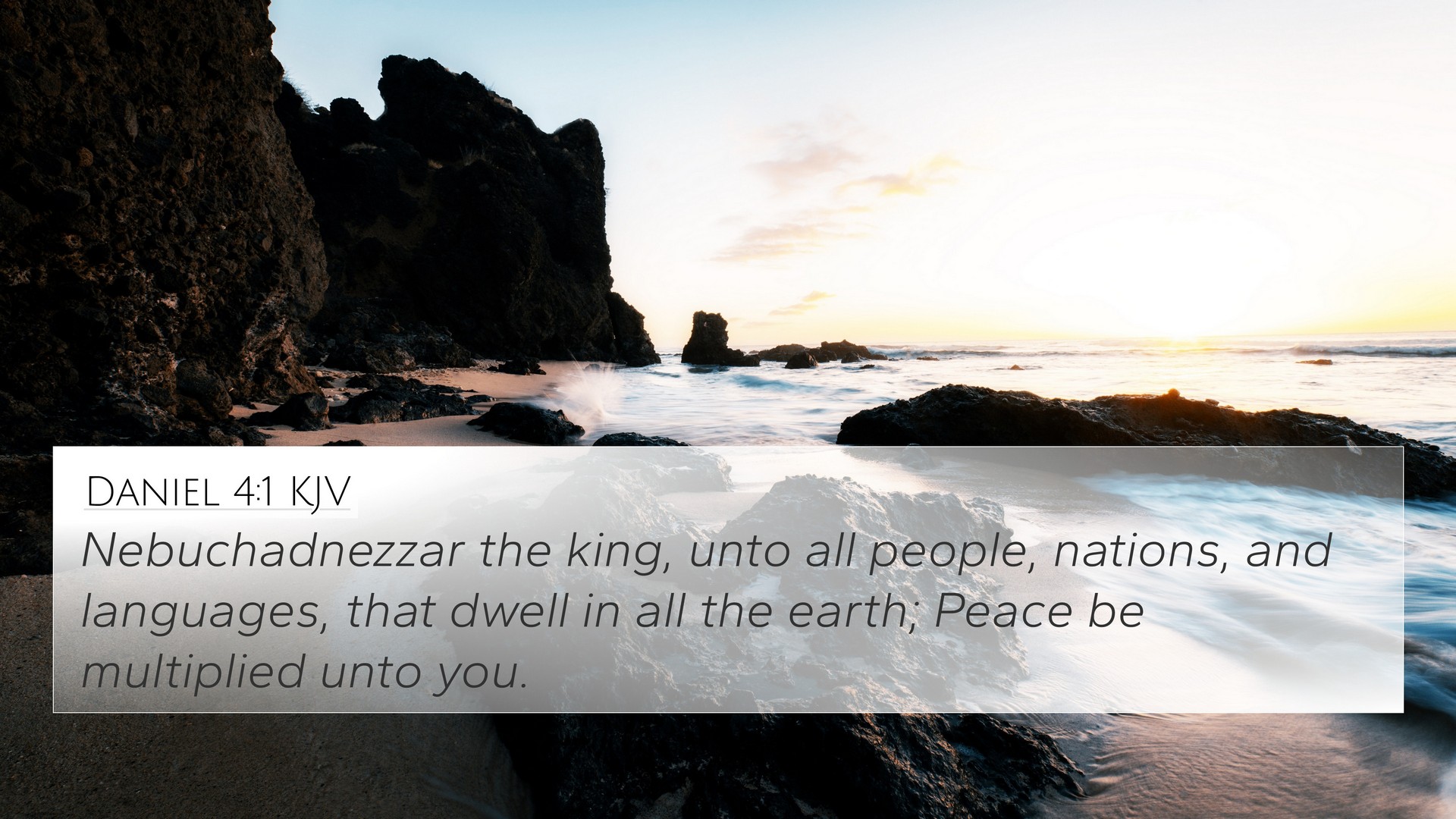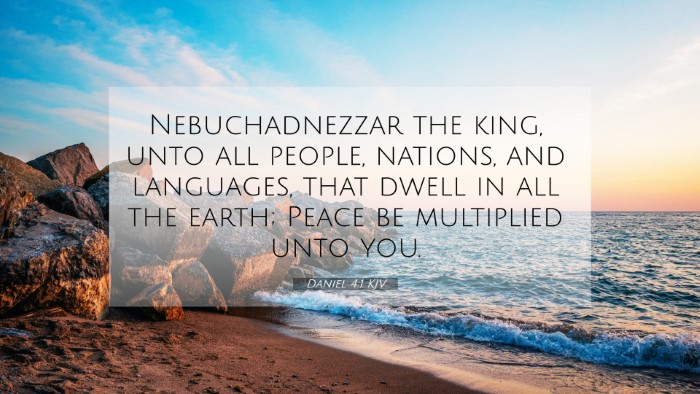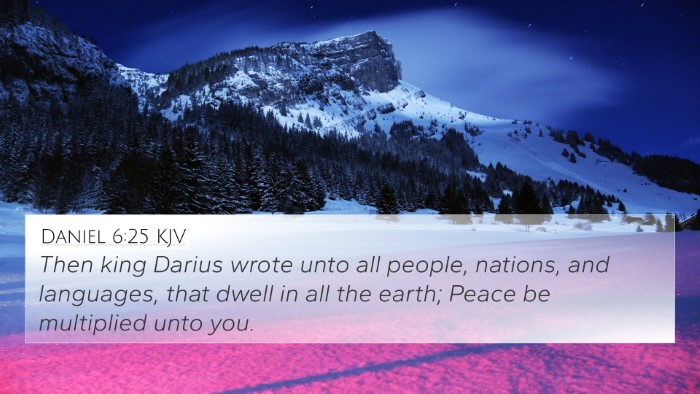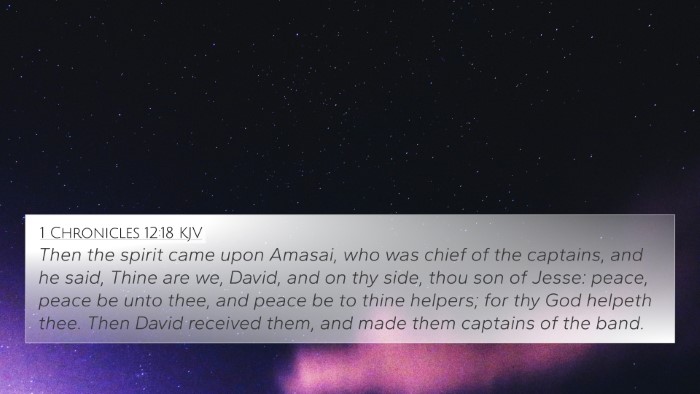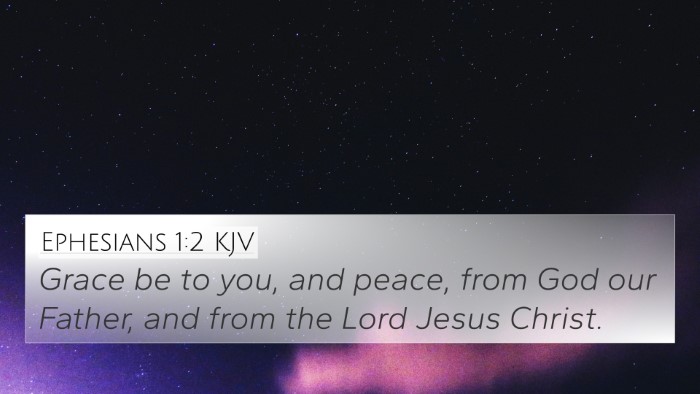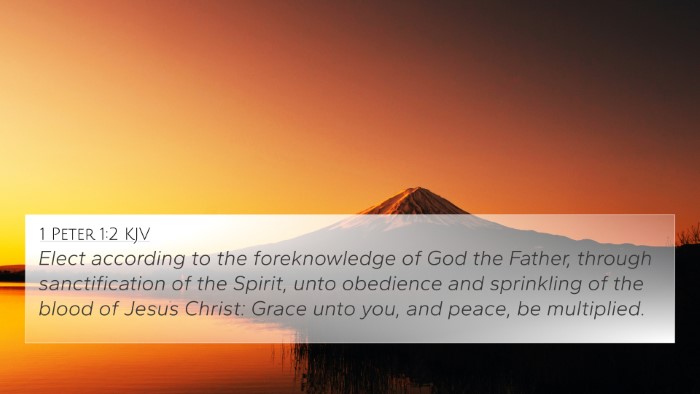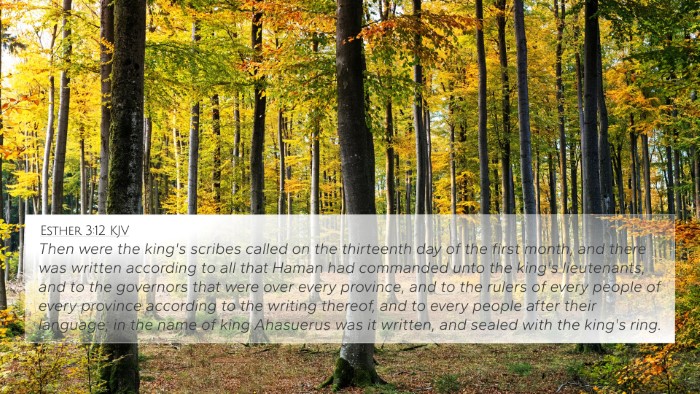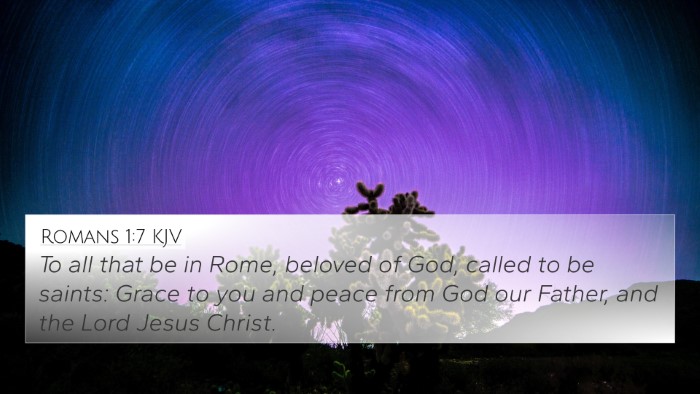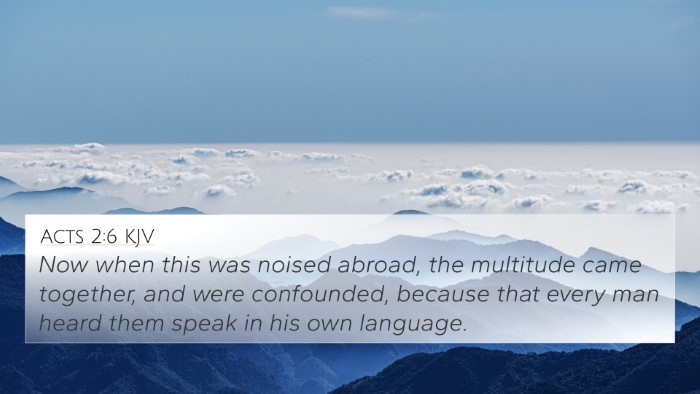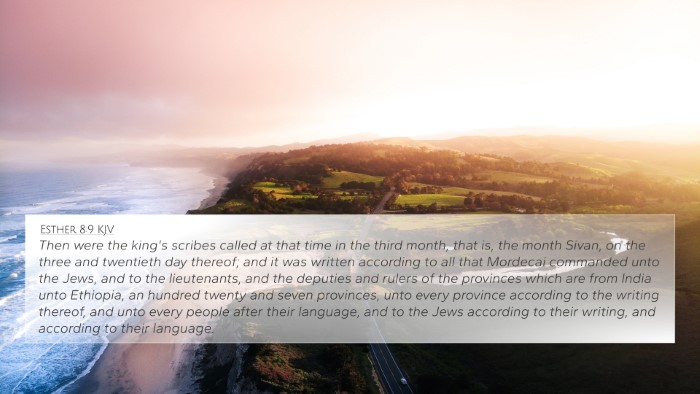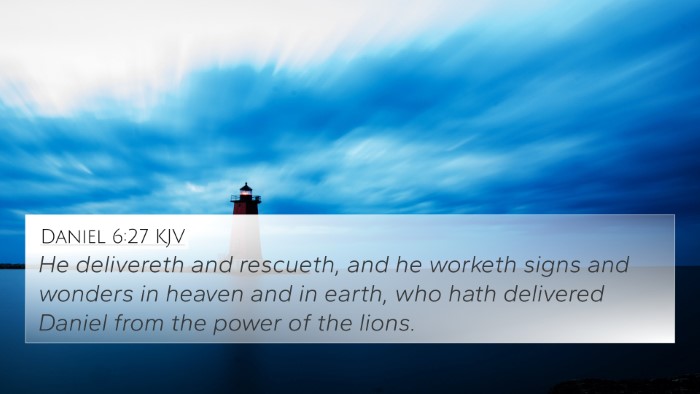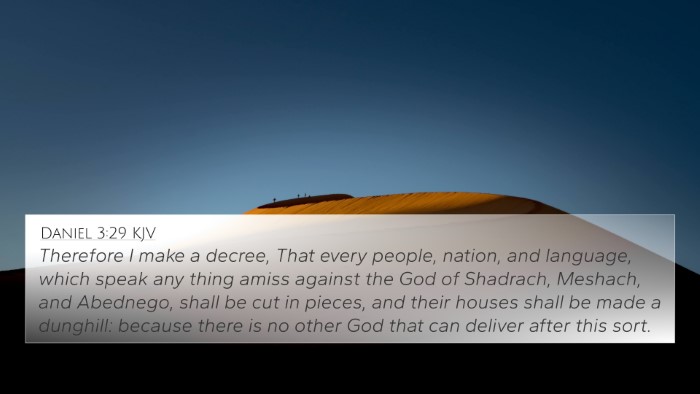Understanding Daniel 4:1
Daniel 4:1 states: "Nebuchadnezzar the king, unto all people, nations, and languages, that dwell in all the earth; Peace be multiplied unto you." This verse serves as an introduction to a significant proclamation by King Nebuchadnezzar, which has deep theological implications.
Context and Overview
The context of this verse is vital. Nebuchadnezzar, the king of Babylon, is addressing people across his vast empire. The chapter unfolds a remarkable narrative about God’s sovereignty and Nebuchadnezzar’s personal transformation following a divine encounter.
Insights from Public Domain Commentaries
-
Matthew Henry:
Henry emphasizes the king's expansion of his audience, highlighting an awareness of his realm and the authorial intent of sharing blessings. This introduction suggests that what follows is not merely a personal account but a message intended for communal reflection and edification.
-
Albert Barnes:
Barnes points out the king's desire for peace as indicative of his contemplation on personal power and authority. He believes that the phrase "Peace be multiplied unto you" demonstrates a governing principle of goodwill that reflects an improvement in Nebuchadnezzar's character as he recognizes the necessity of divinely sanctioned peace.
-
Adam Clarke:
Clarke interprets the verse as a significant moment of humility from Nebuchadnezzar, indicating a shift from tyranny to benevolence. Clarke notes that it sets the stage for the miraculous story that follows, underscoring the transformation of a proud king into one who acknowledges higher authority.
Thematic Analysis
This verse embodies themes of authority, peace, and divine sovereignty. The proclamation acts as a bridge connecting the king's authority with the divine message he has received. It underlines the importance of recognizing higher powers and the impact of divine intervention in human affairs.
Cross-References
This verse can be cross-referenced with various other Biblical texts that enhance its meaning:
- Jeremiah 24:6: A reminder of God's watchfulness over His people.
- Isaiah 45:23: A declaration of God's authority over all nations.
- Luke 2:14: The angels proclaiming peace on earth at Christ's birth.
- Romans 13:1: The authority of governing bodies as instituted by God.
- Philippians 4:7: The peace of God which surpasses all understanding.
- 1 Timothy 2:1-4: The call for prayers for all who are in authority.
- Psalm 22:27: All nations turning to the Lord, emphasizing His sovereignty.
Connections Between Bible Verses
Daniel 4:1 serves as an excellent example of thematic Bible verse connections, particularly in relation to the transformation of authority as depicted throughout Scripture. By cross-referencing this verse with others that discuss authority, peace, and divine intervention, one can see a consistent narrative that threads through the Bible.
Inter-Biblical Dialogue
The dialogue between Old Testament prophecies and New Testament fulfillments is significant. Just as Nebuchadnezzar acknowledges a higher power, New Testament teachings reflect on the importance of submitting to God's will, suggesting a continuity in the understanding of divine sovereignty.
Conclusion
In conclusion, Daniel 4:1 is more than a simple introduction; it encapsulates the transformational experiences of King Nebuchadnezzar and emphasizes the broader themes of peace, authority, and divine sovereignty. By utilizing tools for Bible cross-referencing, one can uncover rich insights into how this verse interacts with others within the scripture.
Tools for Bible Cross-Referencing
To delve deeper into these connections, readers may refer to Bible concordances, cross-reference guides, and Bible reference resources to explore how different scriptures relate to each other. These tools enhance the study of Scripture by revealing thematic links and the broader narrative woven throughout the Bible.
Final Thoughts
Understanding Daniel 4:1 within its scriptural context not only enriches one's grasp of Biblical narratives but also facilitates deeper spiritual insights. As individuals engage with these texts, they can appreciate the themes of God's governance and the importance of recognizing peace and authority in their own lives.
